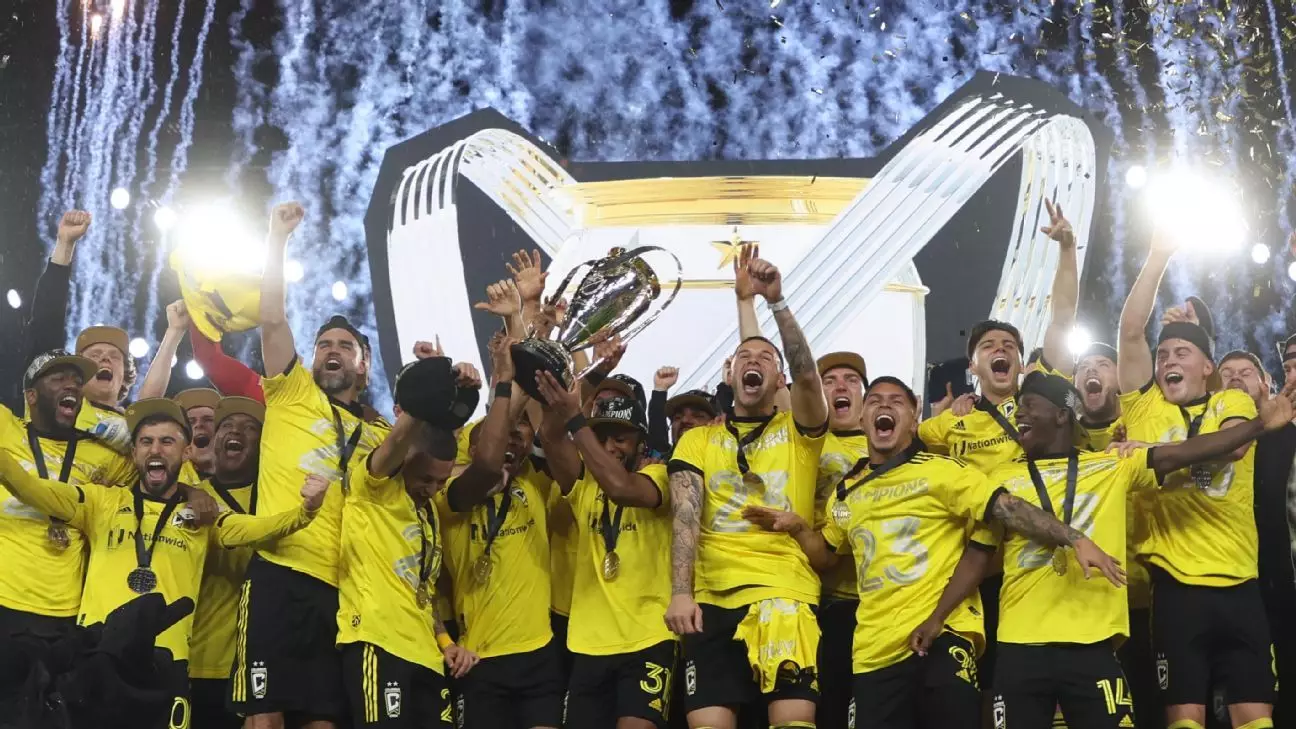Since its inception in 1996, the MLS Cup has become a staple of American soccer, representing not just a championship match but a celebration of the growth and evolution of Major League Soccer (MLS). The first match, held on October 20, 1996, saw D.C. United narrowly defeat the LA Galaxy with a scoreline of 3-2. This inaugural game did more than crown a champion; it laid the foundation for what would evolve into one of soccer’s most anticipated annual events in North America.
The MLS Cup has consistently featured teams from both coasts, pitting the Eastern Conference champion against their Western Conference counterpart. This annual clash embodies the competitive spirit of the league, providing thrilling matches that captivate fans. Over the years, the MLS Cup has transitioned from being a fledgling tournament to a key component of the American sports landscape, signifying the burgeoning popularity of soccer in the United States.
Among the many teams that have graced the field during the MLS Cup, the LA Galaxy stands out with a remarkable record. With five championship titles (2002, 2005, 2011, 2012, and 2014), they boast the most MLS Cup victories. The team’s success can be attributed not only to standout players but also a strong organizational structure that emphasizes competitiveness. D.C. United follows closely, with four titles, exemplifying a storied rivalry that has enriched the tournament’s lore.
While some teams have thrived, others have struggled with the elusive trophy. It’s noteworthy that among the 29 current MLS teams, a staggering 14 have yet to lift the MLS Cup. Teams like Austin FC and CF Montréal are still searching for their maiden title, creating an intriguing narrative of competition and ambition that defines the league’s ethos. Moreover, 10 teams have never reached the Cup finals, underscoring the competitive disparity that exists in MLS.
Consistent Contenders
The LA Galaxy’s dominance extends beyond just titles; they also hold the record for the most appearances in the MLS Cup, having competed in 10 finals. This consistency illustrates their ability to build competitive squads over generations of players, effectively blending star power with emerging talent. In addition, teams like the Seattle Sounders FC and Columbus Crew have demonstrated the ability to rise to the occasion, with the Crew recently winning their second title in a dramatic fashion.
The significance of the MLS Cup is not limited to the trophy itself but extends to the opportunities it provides teams to participate in the Concacaf Champions Cup. This invitation underscores the importance of the MLS Cup, tying it directly into the international soccer landscape and elevating its profile as a championship that matters beyond the borders of the United States.
The Philip F. Anschutz Trophy, named after one of the league’s co-founders, is awarded to the MLS Cup winner. This trophy embodies the glory of accomplishment in a league that has experienced substantial transformation since its inception. Each name engraved on the trophy tells a story—of teams, of players, and ultimately, of the passionate fanbases that rally behind them. The trophy provides teams with a tangible representation of their hard work and dedication.
Beyond the cup itself, individual excellence is celebrated with the award of the MLS Cup MVP. Recipients of this accolade have included soccer icons such as Landon Donovan and Josef Martínez, highlighting the importance of standout performances during the championship. The caliber of plays and the dramatic moments that lead to MVP recognition elevate the competition, inspiring not just players but also younger generations to aspire to greatness.
As we look to the future, the MLS Cup will continue to evolve, adapting to the changing landscape of soccer. The growing fanbase, along with increasing investment in player development and talent acquisition, hints at an increasingly competitive market. The narratives of triumph and disappointment, champions and challengers, will ensure that the MLS Cup retains its esteemed place as the pinnacle of American soccer. As we anticipate future clashes, one thing is certain: the evolution of the MLS Cup is far from over, and its legacy will continue to shape the future of soccer in the United States.

